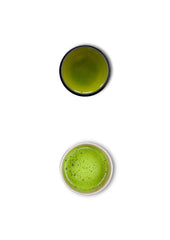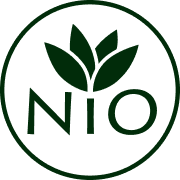Sencha vs matcha is a comparison that is often made, but the two teas are actually very different. When it comes to green tea sencha and matcha are the most famous in Japan, but they are very different.
We’ll take a look at how the teas are produced and prepared to find all the differences between Matcha vs Sencha. Without further ado, let’s get started! 🍵🍃🇯🇵
Matcha vs Sencha: detailed comparison video
What's the difference between sencha vs matcha
Matcha powder
Matcha was the original tea consumed in Japan, and is still the tea used in the Japanese tea ceremony.
In the medieval market of green tea sencha and matcha were both popular, but sencha began to overtake matcha as the biggest tea in Japan in the 1700s, and this is where the discussion between sencha vs matcha first began. Many people were tired of the strict rules and principles, and wanted a simpler way to prepare tea.
If you're interested in the history of Japanese tea, the article 👉 History of green tea in japan & Tea ceremony is made for you!
Sencha

Sencha is the most common type of green tea in Japan, and it can take on a wide variety of different forms.
It is made from tea leaves that are steamed, rolled and dried. The dried leaves are then infused into warm water to create sencha tea. It's prepared by infusing the processed whole tea leaves in hot water.
To discover the secrets of this superior green tea, you can read the article 👉 Everything You Need to Know About Sencha.
#1 Matcha vs Sencha Appearance
The most obvious difference between matcha vs sencha is that matcha is in a powdered form and sencha is in a loose leaf form.
This affects just about every aspect of matcha and sencha, from the production to the health benefits and the flavor.
#2 Growing of sencha vs matcha
The growing process of Matcha and Sencha provides a lot of different decisions for the farmer to make.
If you're interested, we invite you to read the article 👉 How is tea made?
Shading
In addition to choosing the cultivar for sencha and matcha, farmers may choose to shade the tea plants before harvesting to enhance specific characteristics. This creates another difference between matcha vs sencha. Both sencha and matcha can be shaded, but matcha has to be shaded.

#3 Production of Matcha vs Sencha
Most of the differences between matcha vs sencha come from the production process.
Harvesting of matcha and sencha
Both matcha and sencha are made using the top sprouts, creating another similarity between sencha vs matcha. Matcha can be made from the top 3-5 sprouts, whereas sencha is made from the top 3 sprouts.
Production of sencha vs matcha
Both sencha and matcha need to be heated to stop the oxidation process, but the difference between matcha vs sencha is the fact that while sencha leaves are simply rolled and dried, matcha has its stems removed and then is ground into a fine powder in a large stone mill.
#4 Health Benefits of Sencha vs Matcha
You consume more of the leaf when you drink matcha vs sencha. When you drink a cup of normal green tea, you are drinking just the water soluble components of the outer leaf. This is a key difference between sencha vs matcha with regards to health benefits.
Matcha vs Sencha Antioxidants
Another difference between sencha vs matcha is the antioxidant content. Because you are consuming the entire leaf, you are getting 10 times the amount of antioxidants compared to a regular green tea.
Matcha vs Sencha Caffeine & L-Theanine
One difference between sencha vs matcha that gets talked about a lot is the caffeine content. Caffeine is produced by the tea plant used to make sencha and matcha as a defense mechanism to protect itself against insects, and it produces more when it's under stress like during shading.
Even though matcha is a high caffeine tea, with about 68mg of caffeine per serving of premium matcha, you won’t feel the same jolt as you do with coffee. This is because the caffeine in sencha and matcha is also combined with theanine, helps the body slow the absorption of caffeine, so get a long lasting calm alert feeling throughout the day.
#5 Matcha vs Sencha Price
There's a big price difference between sencha vs matcha. A good ceremonial grade matcha sells for $1-2 per gram whereas premium sencha is 30-50 cents per gram. The longer production process is mostly what contributes to the difference in price between sencha vs matcha.
#6 Taste and Color of Sencha and Matcha

What does matcha taste like and look like? As we mentioned before, when you grind the tea leaf into a powder and mix it into water, it tastes completely different than a brewed tea.
Matcha is a much darker green color and it is opaque, whereas sencha tends to be a yellowish green color and is translucent.
The mouthfeel of sencha vs matcha also could not be more different.
Matcha is extremely thick, almost like milk or cream whereas sencha is more like a juice. This is because the concentration of tea leaf in the water is much higher.
Also, these strong vegetable or seaweed notes are more present in matcha vs sencha. If you want to learn even more differences between matcha and regular green tea, you can read our article 👉 10 Difference between Matcha and Green Tea





